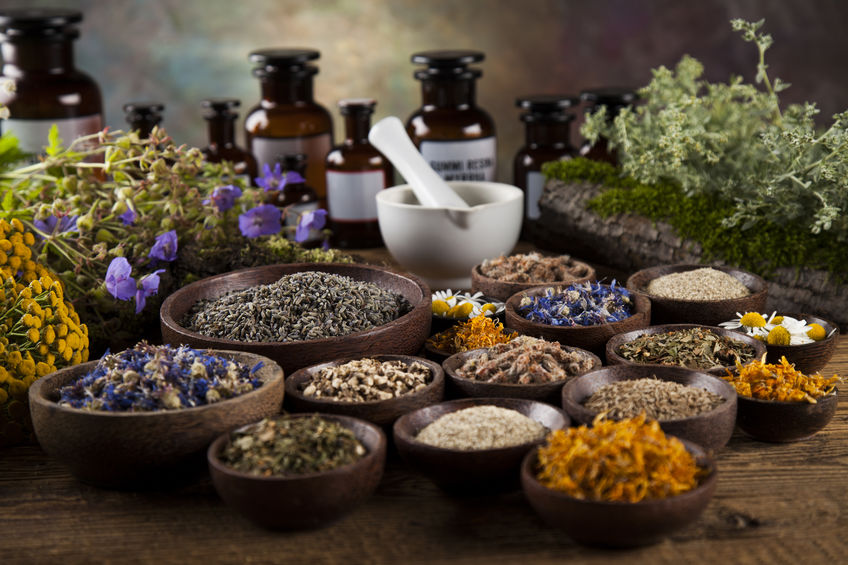
Chronic pain affects a reported 20% of adults in the Western world, interfering with daily activities, sleep, emotional well-being, and overall quality of life. While traditional medical approaches often rely on pharmaceutical interventions, many individuals are turning to holistic and natural treatments for safer, long-term solutions.
Holistic health focuses on the whole person—mind, body, and spirit—offering a range of therapies that aim to address the root causes of pain rather than just masking symptoms. At the heart of this movement is the desire for greater autonomy, fewer side effects, and treatments that support overall wellness.
In this guide, we’ll explore a variety of holistic treatments for chronic pain and explain why they work. From herbal medicine and essential oils to nutritional supplements and lifestyle adjustments, we’ll break down natural approaches that might help you or your loved ones find lasting relief!
Understanding Chronic Pain
What Is Chronic Pain?
Chronic pain is persistent pain that lasts for weeks, months, or even years, often continuing beyond the expected healing time. It can result from conditions like arthritis, fibromyalgia, nerve damage, or autoimmune disorders—and sometimes, there’s no clear cause at all.
Unlike acute pain, which signals an immediate problem, chronic pain develops into a condition of its own, impacting physical function, sleep, mood, and daily life. Since it is often influenced by various factors, effectively managing chronic pain usually requires a comprehensive, whole-body approach.
The Emotional and Mental Toll
Many individuals with chronic pain also experience symptoms such as fatigue, depression, anxiety, and cognitive difficulties, often referred to as “brain fog.” Over time, these additional challenges can exacerbate the pain, creating a frustrating and exhausting cycle.
Why the Root Cause Isn’t Always Clear
The cause of chronic pain can be straightforward (such as nerve damage) or harder to pinpoint, as is often the case with conditions like fibromyalgia or chronic fatigue syndrome. In some situations, the nervous system becomes overly sensitized, meaning the brain continues to send pain signals even when there’s no clear injury or inflammation. This is known as central sensitization and is a key reason why holistic approaches are so valuable.
Why Holistic Approaches Matter

Because chronic pain is so multidimensional, treatment needs to address more than just physical symptoms. Holistic care takes into account everything that may be contributing to a person’s pain, from their posture and activity levels to their diet, stress levels, and sleep quality.
Natural treatments aim to reduce inflammation, calm the nervous system, improve circulation, and support relaxation—all of which can lead to meaningful relief. When approached from multiple angles, chronic pain becomes much more manageable and, in many cases, significantly reduced.
Herbal Remedies for Chronic Pain
Herbal medicine is one of the oldest forms of healing and is still widely used today for its pain-relieving, anti-inflammatory, and calming properties.
Here are some of the most effective herbs for chronic pain, with a breakdown of how each one works:
- Turmeric – Turmeric contains an active compound called curcumin, which has strong anti-inflammatory and antioxidant properties. It’s especially beneficial for those dealing with joint pain, arthritis, or muscle soreness. While it can be added to food or taken as tea, curcumin supplements offer higher concentrations for more targeted relief.
- White Willow Bark – Known as nature’s aspirin, white willow bark contains salicin, a compound similar to the active ingredient in aspirin. It’s often used to relieve lower back pain, osteoarthritis, and headaches. Unlike synthetic pain relievers, it’s gentler on the stomach but should still be used with care, especially for those with aspirin sensitivities.
- Boswellia – Also called Indian frankincense, Boswellia is a resin extract that has been shown to block inflammatory pathways in the body. It’s commonly used for rheumatoid arthritis and inflammatory bowel disease. Studies suggest it may reduce joint swelling and improve mobility when taken consistently.
- Devil’s Claw – Native to southern Africa, devil’s claw has been used traditionally to treat arthritis, back pain, and tendonitis. It contains iridoid glycosides, compounds known for their anti-inflammatory and analgesic effects. It’s typically taken as a supplement or in tincture form.
- Ginger – Ginger has powerful anti-inflammatory and antioxidant properties that effectively relieve muscle pain and soreness. It’s especially helpful for people with osteoarthritis, rheumatoid arthritis, or exercise-related muscle discomfort. Ginger works by blocking the formation of certain inflammatory compounds and can even help improve circulation, which may speed up healing and reduce stiffness. It also helps ease nausea, which is a common side effect for people managing chronic pain.
These herbs come in various forms—capsules, tinctures, teas, or topicals—and the best option often depends on your needs and lifestyle. For best results, consult with a knowledgeable herbalist to tailor your herbal regimen to your specific pain type and health goals.
The Power of Essential Oils and Aromatherapy
Essential oils aren’t just for relaxation—they can play a role in pain relief, too. Aromatherapy works by using plant-based oils that support emotional and physical wellness. Many essential oils have anti-inflammatory and pain-reducing effects, making them great tools for natural relief.

Here are a few favorites:
- Peppermint – Cools the skin and soothes headaches, sore muscles, and joint discomfort.
- Lavender – Calming and anti-inflammatory. It also supports better sleep, which can be a game-changer for people with chronic pain.
- Eucalyptus – Eases inflammation and helps with respiratory issues, which can sometimes be a hidden stressor.
- Frankincense – Great for circulation and joint inflammation.
- Ginger & Clove – Warming oils that can provide comfort for deep tissue or arthritic pain.
These oils can be diffused, added to bath water, or used topically with a carrier oil.
The Role of CBD in Pain Management
CBD (cannabidiol) has become a buzzword in natural health—and for good reason. It’s a non-psychoactive compound found in hemp that interacts with the body’s endocannabinoid system, which helps regulate pain, mood, and inflammation.
Research suggests CBD may help reduce:
- Chronic pain and inflammation
- Neuropathic and musculoskeletal pain
- Sleep disturbances related to chronic conditions
- Muscle spasms and tension
CBD comes in tinctures, topicals, gummies, and capsules—so you can choose a format that works for you.
Supporting the Body with Nutritional Supplements
Your diet and nutritional health can play a major role in how you experience pain. Certain vitamins and minerals are key players in reducing inflammation and promoting overall well-being:
- Magnesium – Helps muscles relax and supports nerve function.
- Vitamin D – Low levels are linked to higher pain sensitivity.
- Omega-3s – Found in fish oil, these healthy fats reduce inflammation throughout the body.
- B Vitamins – Help with nerve health and energy metabolism.
- Turmeric/Curcumin Supplements – Offer a concentrated dose of this powerful anti-inflammatory.
Pairing nutritional supplements with a whole-food, anti-inflammatory diet can give your body a major boost.
Mind-Body Techniques and Lifestyle Practices
We can’t talk about holistic pain relief without touching on the mind-body connection. Stress, anxiety, and poor sleep often make chronic pain worse, so managing those factors can help make everything else more effective.

Here are a few holistic practices to consider:
- Gentle Yoga or Stretching – Keeps your body moving and reduces stiffness.
- Meditation & Breathwork – Calms the nervous system and lowers pain perception.
- Acupuncture – Stimulates endorphin release and has been shown to help with various types of pain.
- Massage Therapy – Especially effective when combined with essential oils.
- Better Sleep Habits – Even small improvements in sleep quality can reduce how intensely you feel pain.
Creating a Personalized Holistic Pain Relief Plan
Everyone’s pain is a little different, so finding the right combination of natural treatments is key. Your plan might include herbs, essential oils, dietary changes, and stress reduction practices. Start simple, be patient, and don’t hesitate to get guidance.
Working with a knowledgeable herbalist or holistic practitioner can help you create a routine that feels right for your body—and your lifestyle.
And don’t forget: always loop in your healthcare provider, especially if you’re already taking medications or managing other conditions.
Why Holistic Remedies Are Worth Exploring for Chronic Pain
Holistic treatments offer more than symptom relief—they support your body’s overall healing and long-term well-being. Whether you’re dealing with muscle soreness, joint pain, or inflammation that just won’t go away, natural approaches like herbs, oils, CBD, and nutritional support can make a real difference.
How Dande-Lion Herb Shop Can Help
You don’t have to live your life in constant pain. At Dande-Lion Herb Shop in Glen Burnie, MD, you can explore our wide selection of high-quality herbs, essential oils, supplements, and holistic remedies. We combine the wisdom of traditional herbology with insights from practices such as iridology and kinesiology to help customers create customized wellness plans tailored to their specific ailments.

Whether you’re managing chronic pain, inflammation, or another long-term condition, our knowledgeable staff will guide you in finding natural solutions that work for your body.
Browse our holistic health services online and call us at (410)768-8144 to set up a free consultation.
Relief is possible—and with the right natural tools and guidance, healing can become a way of life!
